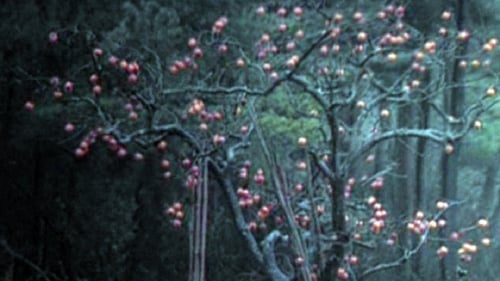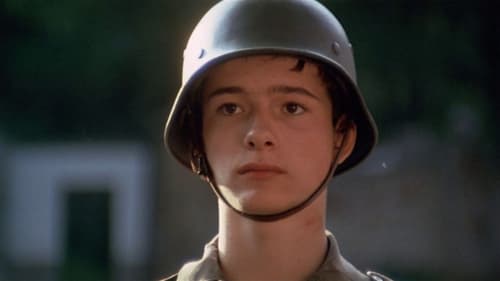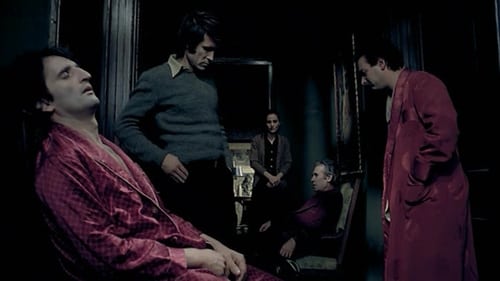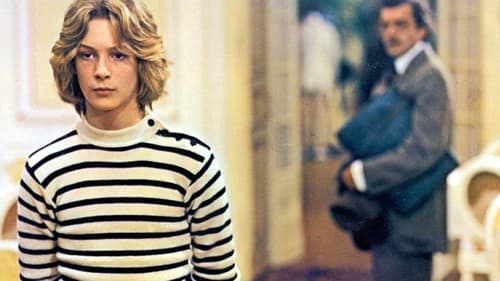
Compositor

Original Music Composer
For Mahler, symphonies always were a means of interpreting the most convoluted philosophical problems that couldn’t be resolved verbally. The ambitious structure of the five-part Fifth Symphony spans from the Funeral March to the roaring finale. It is a forthright attempt to resolve the tragic conflict with the surrounding world. The brilliant fourth part of the symphony, Adagietto, resembles a beautifully mysterious flower that every conductor reimagines in their own style. As one of the twentieth century’s most influential maestros, Mahler redefined the conductor’s role. For him, the conductor is just as integral to his own musical works as they are to the composer. When a maestro steps onto the podium and opens the score, he recreates musical universes from scratch. Teodor Currentzis and the musicAeterna orchestra have performed Mahler’s symphonies around the world for many years. The Fifth Symphony has earned its place as one of the highlights of the cycle.

Music
The night seems terribly dark, of an unfathomable blackness where the worst nightmares dwell. For the archer Yin, however, the night is made of shadows, brown or reddish, velvety or light, as if it were inhabited by flying beings that cannot be seen during the day, like wings of darkness.

Original Music Composer
Claudio Abbado and his hand-picked players of the Lucerne Festival Orchestra take their acclaimed Mahler cycle to a new level with this audiovisual recording of the most complex and compelling of the symphonies, the intense, searching Ninth. Abbado brings all his renowned clarity of vision and the experience of a lifetime to this contradictory music half valedictory, half life-affirming and his orchestra of soloists, including some of the leading instrumentalists of our time, revels in the transparent textures and virtuosity of Mahlers last completed symphony.

Original Music Composer
A world-class pairing, the Los Angeles Philharmonic and their charismatic new Music Director Gustavo Dudamel, mark the start of their partnership with this concert, filmed live at the Walt Disney Concert Hall. The program defines everything that is fresh and exciting about their collaboration: a John Adams world premiere, City Noir, music that steps back into the dark past of Los Angeles, and the allembracing First Symphony by Mahler, the composer who launched Dudamel's dazzling international career. "This was an exceptional and exciting concert by any standard." - The New York Times

Music
A story about art and educated men, and how their art and culture reveal themselves useless in the face of the harsh realities of the 20th century life.

Self - Conductor
Documents the interpretations of Gustav Mahler's compositions by conductors Bernard Haitink, Riccardo Chailly, Riccardo Muti, Claudio Abbado, and Simon Rattle, who detail the special relationship they have with Mahler's work.

Music
"Элегия дороги" - сказка о путешественнике, который преодолевает иллюзорное пространство, чтобы попасть в воображаемое прошлое. Ни популярности, ни славы. Из "Сала Перла" все время показа тонкой струйкой вытекали люди, и к концу фильма и так наполовину пустой зал был едва заполнен... Визуальное пространство его новой элегии с самого начала - зыбкая, дрожащая картинка, как марево, - нечто ускользающее, туманное, неопределенное. Снег, 2 солдата, идущие по тропе между сугробов, дерево, которое все еще несет свои цветы, несмотря на метель. Эти люди часто оставались здесь, они все время что-то обсуждали. А это окно все время было заперто - никто из нас не знал, что за окном, но Питер нарисовал его открытым. А дети на этом месте никогда не играли. Сокуров рассказывает о событиях на площади святой Марии так, как будто он жил вместе со всеми нарисованными людьми и самим художником.

Music
В некоем Доме-музее работает сторожем странный молодой человек. Однажды ночью в ванной он встречает другого странного человека, похожего на некоего известного писателя. Тот самозабвенно моется, на требование паренька покинуть помещение госучреждение отвечает нечленораздельным бормотанием…

Music
Director Wolfgang Lesowsky's captivating biopic of the Gustav Mahler stars Reinhard Hauser as the passionate conductor-composer whose drive for greatness and love of music were rivaled only by his insatiable desire for beautiful women. Through biographical narration and dramatic reenactments, Lesowsky paints a stylish portrait of the mercurial genius, widely regarded as one of the most important composers of the late romantic era.

Compositor
This television essay from 1985 was written by Leonard Bernstein to commemorate the 125th anniversary of Gustav Mahler's birth. Recorded in Israel, Vienna and later in London, it is punctuated by biographical interludes and illustrated by musical examples drawn from the cycle of Mahler's works recorded by Bernstein. Bernstein talks, plays and conducts various orchestras (Israel Philharmonic Orchestra, London Philharmonic Orchestra, Wiener Philharmoniker) and soloists (Janet Baker, Christa Ludwig, Edith Mathis, Lucia Popp, Walton Groenroos) in performances spanning 17 years. Leonard Bernstein also examines the roots of Gustav Mahler's inspiration. The programme also features music from the nine symphonies, 'The Song of the Earth' and the 'Wunderhorn Cycle'.

Music
Anne-Marie Miéville, frequent collaborator of Jean-Luc Godard, made this partner piece to Godard's own 'Je vous salue, Marie'. Marie, eleven years old, is experiencing difficult times. Her parents will separate. The perception of her universe is profoundly disturbed. This exacting portrait of a child immersed in her books, music and dancing casts a dispassionate yet touching eye on the girl's reaction to the new upheaval in her life.

Music
A neo-Nazi organization is recruiting in the 1980s, and two youths of high-school age join for similar reasons, despite class differences. Thomas is the son of a self-made industrialist father and a scolding social-climbing mother. He attends private school and has a brother who's an accomplished musician, but neither can satisfy mom's constant demands for school and social success. She belittles them, and there's incessant bickering at their table. Charly, a dropout, is the son of an abusive, alcoholic laborer. In the youth group, each finds order, respect, camaraderie, and adults who seem to value them. Where do domestic abuse and sanctioned political violence end?

Music
Symphonie mixes fiction with reality. The author, Romain Schneid, tells the story of his own claustrophobia in front of the camera when, when he was 12 years old, hiding as a Jew during the German occupation, he could not leave a tiny apartment. He tells and he plays alone all the characters in his drama. He invents, deforms, imagines another end. He is at the same time the author, the narrator and the actor (the actors). Did he really experience what he's talking about, or did all that happen in his head? Are we facing a testimony or a delusion?

Music
South Slope: What Love Tells Me is a 16mm film made in 1978-1980 by the artist Abbott Meader. It is a dramatic portrait of a piece of land in Maine as seen through the seasons filmed over a period of two years. It is both a documentary and a film poem structured to respond to the 6th Movement of Gustav Mahler's 3rd Symphony as performed by the Portland (Maine) Symphony Orchestra, which kindly donated the performance recording for use in this film. Mahler's subtitle for the 6th Movement is "What Love Tells Me."

Original Music Composer
Documentary short about the title composer, born in what was called "Czechoslovakia" when the film was made.

Music
Отец и три сына переезжают в сельскую местность, когда получают в наследство особняк и деньги, на которые можно спокойно жить, не работая и пользуясь услугами горничной. Постепенно все их время начинает занимать сон, даже прогулки на природе, разговоры и пение за обеденным столом начинают восприниматься как ненужное отклонение от сна.

Music
Based on a free interpretation of Gustav Mahler´s Song Cycle by the same name and a fairy tale by Hans Christian Andersen, this multiple award winning film is a striking example of Titus Leber´s approach to visualise classical music. Using his so called “multi-layer-method” to superimpose several image layers the author takes us in a dream-like lamentation-quest of a mother's winter-journey searching for her child who has been carried off by the Angel of Death.

Compositor
For Mahlerites, his symphonies are much more than musical performances--they can be an emotional or spiritual journey through the struggles, fears, and triumphs of life. This Sixth Symphony is a 1976 performance in the Vienna Musikvereinssaal with PCM stereo and DTS 5.1. The 2 dvd set also includes the 4th and 5th symphonies, which are performed as magnificently as the Sixth.

Compositor
"Four Ways to Say Farewell" is a personal introduction to Mahler and his Ninth Symphony, during which Leonard Bernstein is seen and heard rehearsing the Vienna Philharmonic Orchestra. Filmed in 1971, this rehearsal was directed by Humphrey Burton,

Compositor
Beginning with the First Symphony, Bernstein reveals Mahler's position at the hinge of modernism, while emphasizing his emotional extremism. The uplifting Second "Resurrection" Symphony, with which Bernstein had an especially long and close association, is recorded here in a historic performance from 1973, set in the Romanesque splendor of Ely Cathedral. In the Third, Bernstein encompasses the symphony's spiritual panorama like no other conductor, with the Vienna Philharmonic players alive to every nuance.

Music
Переживающий духовный и творческий кризис композитор Густав фон Ашенбах приезжает весной 1911 года на курорт близ Венеции. Внезапно его поражает и очаровывает красота подростка Тадзио, сына польской аристократки. Смущенный своими чувствами, Ашенбах порывается уехать, но, к несчастью, заражается быстротечной вирусной инфекцией и последние мгновения жизни проводит на пляже, наблюдая за игрой и шалостями юного Тадзио…




















